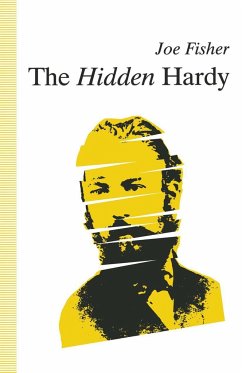Focusing on narrative structure, irony, satire and allusion, The Hidden Hardy offers a radical new perspective on Thomas Hardy's novels. Hardy's own accounts of himself and his work have long been seen as calculated impostures; it is argued here that the same qualities are not only present in his novels, but are critical factors in the way they are made. The respectable and acceptable surfaces are the impostures, masking hidden texts which are extremely hostile to established social, economic and cultural structures.
Bitte wählen Sie Ihr Anliegen aus.
Rechnungen
Retourenschein anfordern
Bestellstatus
Storno









